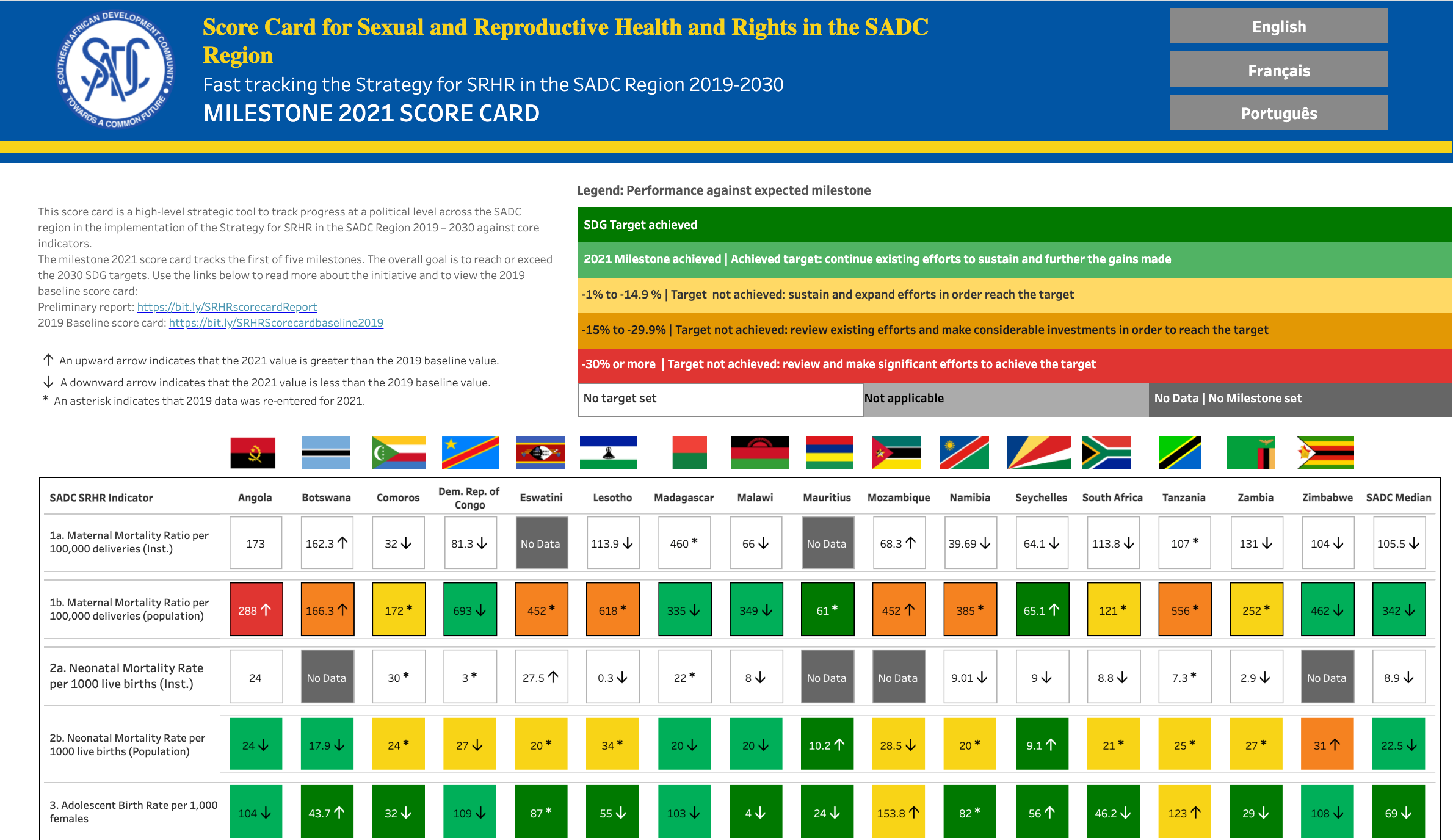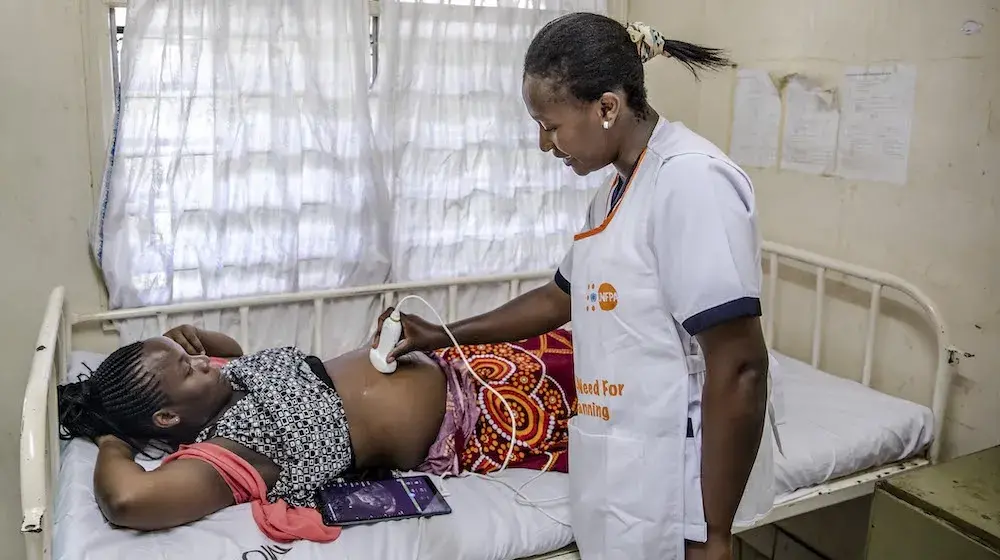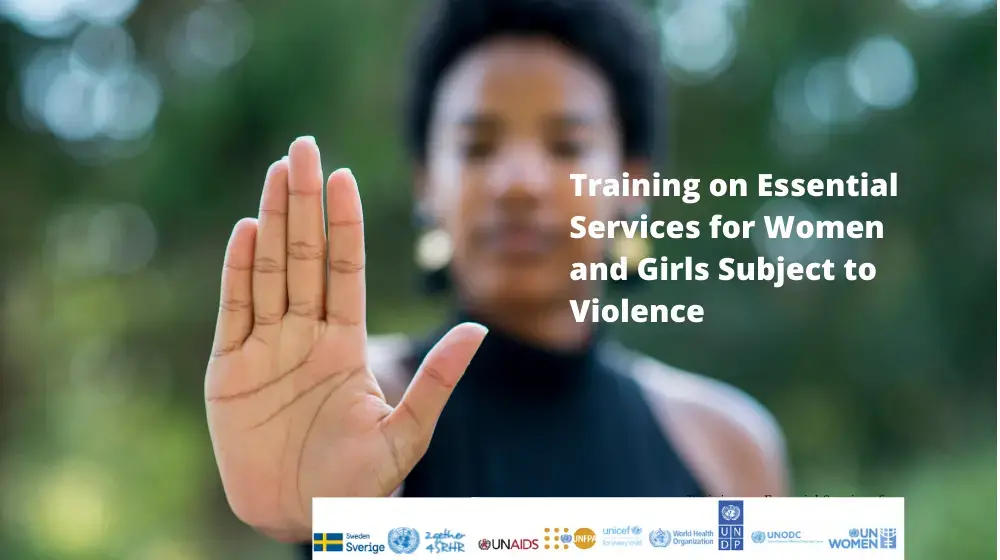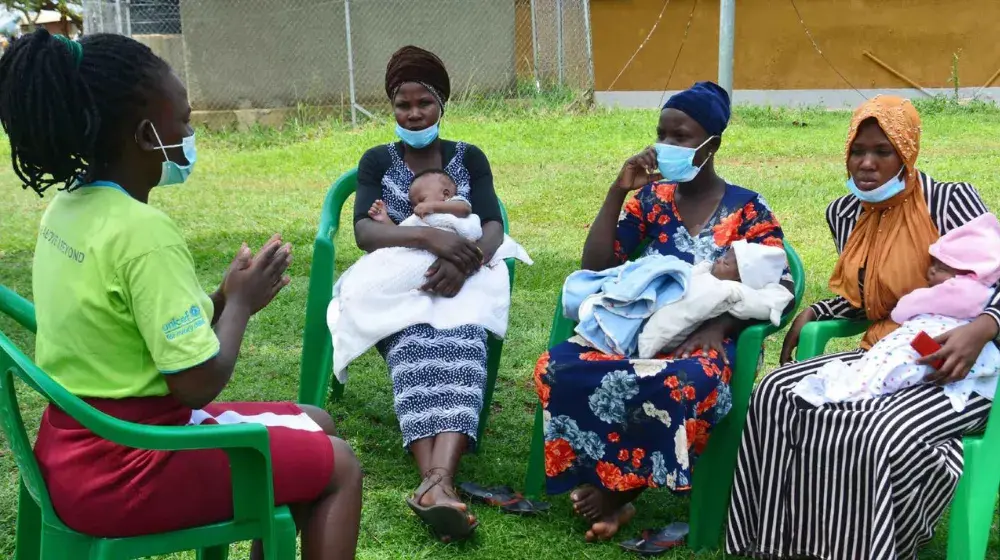LILONGWE, Malawi—The SADC Sexual and Reproductive Health and Rights (SRHR) Scorecard, a high-level peer accountability tool that countries use to track progress towards achieving the SRHR strategy of SADC and the Sustainable Development Goals, was launched in Lilongwe, Malawi.
The SADC Ministers of Health agreed to the development of the SADC SRHR Scorecard in 2018. The inception of the SADC SRHR Scorecard was spearheaded by the SADC Member States of Botswana, Eswatini, Malawi, Namibia and South Africa. By 2018, they had galvanized enough support and the SADC Ministers of Health agreed to its development. SADC countries will be required to report on progress on the scorecard every two years.
It’s a milestone that we’ve got this far but now we need wide-spread awareness raising to drive the recommendations at a domestic level.
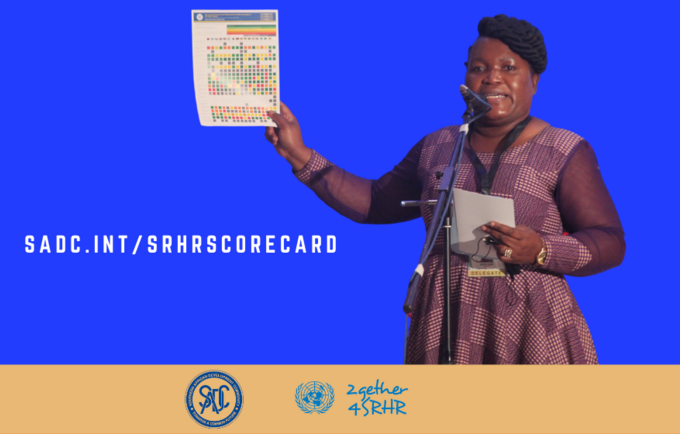
SADC SRHR Scorecard in Lilongwe, Malawi. © UNFPA
“It’s a milestone that we’ve got this far but now we need wide-spread awareness-raising and for people to drive the recommendations at a domestic level in each country,” said CSO representative Jonathan Gunthorp of SRHR Africa Trust at the recent launch of the scorecard in Lilongwe, Malawi.
2gether 4 SRHR Programme Lead Richard Delate of UNFPA reiterated the UN's commitment to the scorecard: “The UN remains a resource to the SADC Secretariat. We will be providing training on the dashboard maintenance so that the Member States are capacitated to analyse data and update the scorecard themselves by the time the 2023 scorecard is ready.”
Measuring progress in countries
The baseline scorecard was developed in 2019. The milestone scorecard measures progress by countries against the baseline data and shows whether the SADC region and Member States are on track to meet the SADC SRHR Strategy and SRHR SDG targets by 2030. The biannual process has been supported by the 2gether 4 SRHR programme since its inception.
Through the programme, the UN has supported the progression of the scorecard by assisting the set up of technical working groups in Member States, ensuring the participation of civil society and providing funding for the development of the online platform that hosts the scorecard today.
Over the years, the technical working groups have constituted UN agencies, civil society organizations and Member States' health ministry representatives with a strong focus on data collection, monitoring and evaluation.
UNFPA ensured the participation of CSOs and in total, 24 organizations took part in the design of the scorecard as part of technical working groups. Their major contribution was strengthening the gender, youth and comprehensive abortion care and data collection focus. The CSOs also ensured youth participation to review the age of consent to access contraception, as well as increasing the age of marriage in order to reduce early marriage for adolescent girls.
Following the successful design and launch of the 2021 scorecard, CSOs have remained a critical partner and have co-hosted and co-resourced SADC SRHR managers meetings and the SADC Health Ministers meetings.


